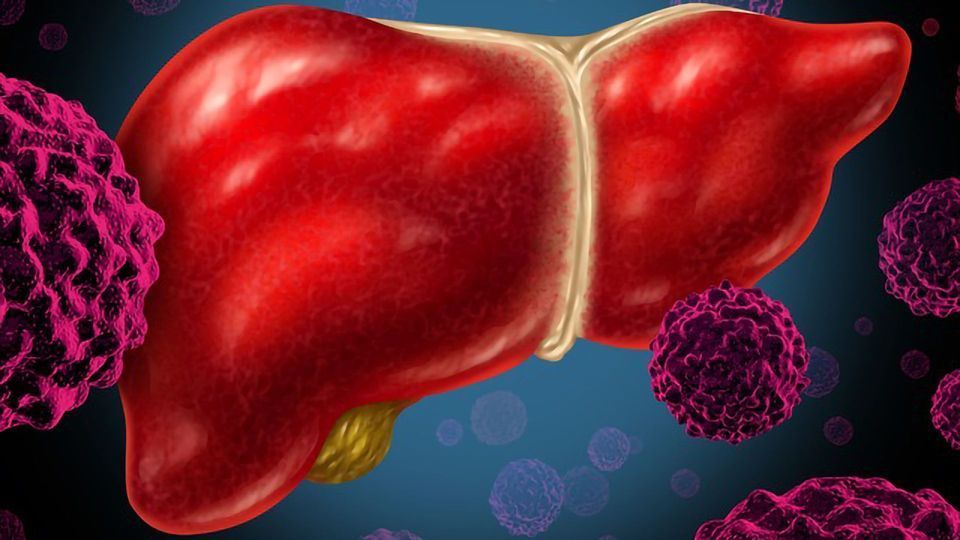Why Cancer Patients With Liver Metastases Have a Poor Response to Immunotherapy

Complete the form below to unlock access to ALL audio articles.
Using multiple mouse models, researchers demonstrate that liver metastases are able to siphon activated CD8+ T cells from the systemic circulation and recruit immunosuppressive macrophages capable of promoting T cell death within the liver. The study, published in Nature Medicine, could be key to understanding why patients with liver metastases typically have a poor response to immunotherapy.
The researchers also discovered that it was possible to restore immune function in mice with subcutaneous and liver tumors, by combining immunotherapy with targeted radiotherapy.
Immunotherapy vs radiotherapy
Immunotherapy works by exploiting elements of a patient’s immune system to fight cancer. There are five main types of immunotherapy – adoptive cell therapy, cancer vaccines, immunomodulators, targeted antibodies and oncolytic virus therapy.Radiotherapy works by delivering high doses of radiation to cancer cells. This results in irreparable damage to the cells’ DNA, meaning they are unable to continue growing or dividing. Cancer cells are less equipped to repair damage compared to normal cells, making them more vulnerable to radiation therapy.
Metastasis and immunotherapy response
To investigate whether there is a relationship between immunotherapy efficacy and location of metastases, the team examined two cohorts of patients with metastatic melanoma. The first cohort was treated with immunotherapy and the second was treated with targeted therapy.
Melanoma was shown to frequently metastasize to the lung, liver or brain. The presence of liver metastases was linked to a reduced immunotherapy response – but targeted therapy efficacy was unaffected. Liver metastases also correlated with diminished overall survival (OS) and progression-free survival in patients with melanoma who had received immunotherapy.
To substantiate these findings, the team also examined two cohorts of patients with non-small cell lung cancer (NSCLC) who had been treated with either immunotherapy or cytotoxic chemotherapy. Liver metastases were associated with a reduced response to immunotherapy, but not to chemotherapy. This provided the team with further evidence that liver metastasis may influence a patient’s response to immunotherapy.
Do liver metastases reduce immunotherapy response?
The team next set out to explore whether a correlation existed between inferior OS and cancer of the liver in all subsets of patients. Additional analysis was performed for patients with melanoma and with NSCLC who had received immunotherapy. A correlation between liver metastases and diminished OS in patients with melanoma was observed. In patients with NSCLC, liver metastases also correlated with reduced OS, regardless of age, gender and therapy type.
To broaden the scope of their findings, the researchers analyzed 718 patients with a diagnosis of metastatic melanoma, NSCLC, urothelial or renal cell cancer who had all received immune-checkpoint blockade therapy at a single center. Those patients with liver metastases had a reduced response to the therapy regardless of cancer type.
A reduced immunotherapy response – But why?
A mouse model was used to investigate the mechanism by which liver metastasis influences immunotherapy. The researchers used single-cell RNA sequencing to examine the animals’ immune microenvironment more closely.
Hepatic cells were isolated from mice with and without liver metastasis. The authors observed that the animals with liver metastases “had an increased proportion of cells within macrophage clusters as well as a diminished proportion of cells within T cell clusters. Activated T cells in mice with liver tumors were more enriched for apoptosis gene signatures than were activated T cells in mice without liver tumors.” This induced T cell death led to a reduction in the number of T cells, weakening the immune system’s ability to attack the cancer cells.
Reshaping the liver immune microenvironment with radiotherapy
"Patients with liver metastases receive little benefit from immunotherapy, a treatment that has been a game-changer for many cancers. Our research suggests that we can reverse this resistance using radiation therapy. This has potential to make a real difference in outcomes for these patients," said Michael D. Green, assistant professor of radiation oncology at Michigan Medicine, in a recent press release.
The researchers treated mice with subcutaneous and liver tumors with either liver-directed radiotherapy, anti-programmed cell death receptor ligand 1 (anti-PD-L1) immunotherapy or combination therapy (anti-PD-L1 plus radiotherapy).
What is anti-PD-L1 therapy?
Immunomodulators, such as anti-PD-L1, work by blocking immune checkpoints. Tumors often manipulate these checkpoints to defend themselves from attack by the immune system. By preventing access to other checkpoint molecules, checkpoint inhibitors can reduce immune suppressive mechanisms – increasing the immune system’s ability to fight cancer. Programmed cell death 1 receptor (PD-1) signaling negatively regulates T cell-mediated immune responses in the body and can act as a mechanism for tumors to evade an immune response. Anti-PD-L1 works by blocking the interaction between two key proteins – PD-1 which is displayed on the surface of immune cells and PD-L1, which is expressed by cancer cells.The study authors concluded that “these data suggest that liver-directed radiotherapy restores systemic efficacy of immune-checkpoint blockade in a CD8+ T cell-dependent manner.”
Armed with an understanding of the mechanism of immune suppression and a potential means to address it, the team is now looking to conduct clinical studies to explore more thoroughly the mechanisms at play in human cancers.
Reference: Yu J, Green MD, Li S, et al. Liver metastasis restrains immunotherapy efficacy via macrophage-mediated T cell elimination. Nat. Med. 2020. doi:10.1038/s41591-020-1131-x




